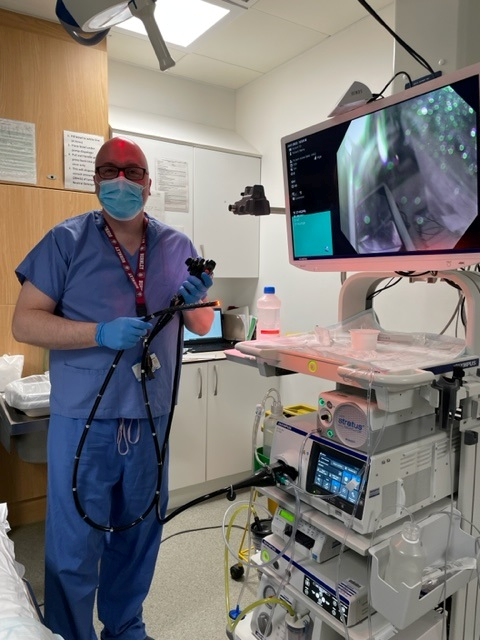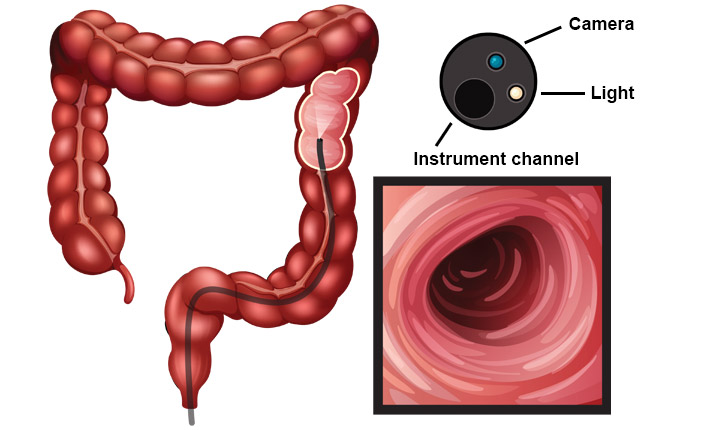Colonoscopy
What is a Colonoscopy?
A Colonoscopy is a test which allows the Endoscopist to look directly at the lining of the large bowel (colon). A long flexible tube about the width of your finger is inserted into the back passage (anus).
The tube is passed around the entire length of the colon and pictures are displayed on a television screen allowing the Endoscopist to detect any abnormal areas.
The test takes approximately 30 minutes to complete but can take a little less and in some cases a little longer. During a colonoscopy the endoscopist may need take biopsies and/or remove polyps if its safe to do so.

Biopsy - tissue samples may be taken and sent to the laboratory for analysis. You will not usually feel any pain when this is done.
Polypectomy - polyps (abnormal growths) can also be removed during colonoscopy and sent for analysis. You will not usually feel pain when this is done.
Endoscopic Mucosal Resection (EMR) may be used to remove larger polyps. EMR does increase the risk of perforation but is still considered to be a safe procedure.
You may have been referred by your hospital consultant or GP to investigate symptoms including, change of bowel habit, bleeding or monitoring of pre-existing condition such as polyps. You may also be referred following a positive stool blood test (FOB) as part of the national bowel cancer screening programme.
Further information can be found on bowel cancer by clicking here.

